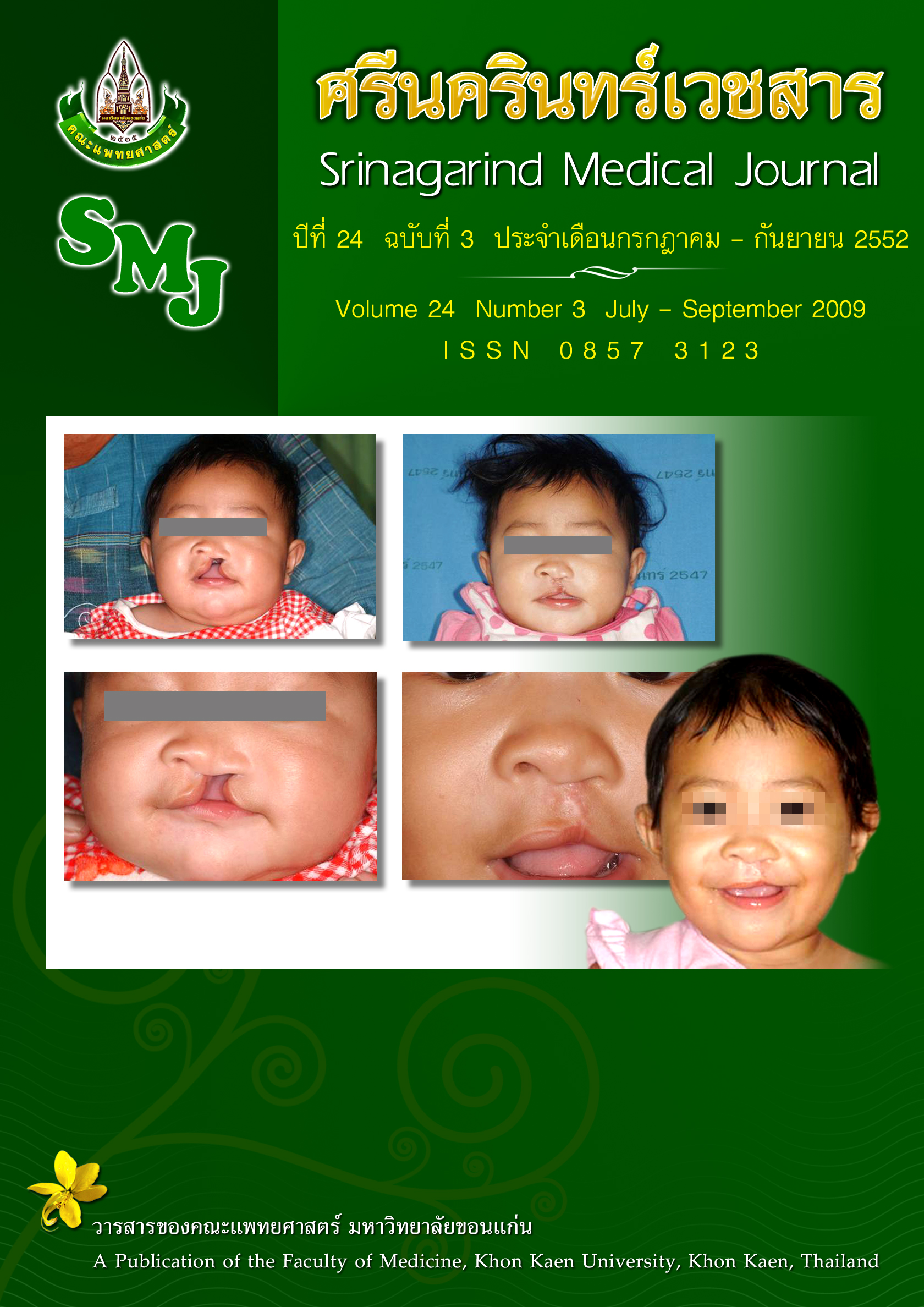Thai-elderly; Mahasarakham Province Context
Abstract
Abstract
Background and Objectives : At present, elderly Thais rapidly grow both in number and longevity of life which effect Thai population structure, dependent ratio, and health services system. Mahasarakham province, no doubt has been confronted these problems. The Mahasarakham elderly studies review the relevance to understanding the elderly in Mahasarakham context including the exploration of research gaps and strategy in regards to health improving among the elderly. To review Mahasarakham elderly studies we divided into 6 parts; (1) general information,(2) elderly and their family, (3) the elderly potential, (4) quality of life, satisfaction and factors related, (5) the elderly happiness and (6) the elderly social welfare.
Methods : Cross – sectional descriptive study by reviewing all of Mahasarakham elderly studies in 2007 in Faculty of Medicine, Mahasarakham University.Total studies were 6 parts which all of these are cross - sectional study.
Results : Most of the elderly are female, widow, completed primary school, had low income since the childhood by government standard. Most of the elders perceived their health status as moderate level and more than half of the elders had chronic diseases. However, there were 70.9% of all elderly samples who were family leaders and their family role were moderate level. This study found the elderly were highly respected in cultural Thai level, especially in the areas of Thai culture, Thai and E-san tradition and handicrafts. This study also found the elderly perceived their quality of life and life satisfaction as in good level, factors related were community participation, family relationship, health status, self esteem. The same as happiness level, the elderly perceived happiness level as high level, factors related were self esteem. education level, community club member, community participation and number of family member. Besides, the elderly perceived their social welfare in part of government living allowance and health insurance as high as well. This study also found urban elderly perceived the social welfare level better than rural elderly. Most of the elderly needs social welfare in aspects of financial and health support.
Conclusion : Even through more than half of Mahasarakham elderly have chronic diseases, this study found the elderly potentially perceived their quality of life, life satisfaction, and happiness as in high level and important factors related such as community participation were satisfactory. The elderly perceived well of social welfare in respects to government living allowance and health insurance. Improving the elderly health is needed to explore as well as educate the elderly in the area of social welfare especially among rural elderly.
Keywords: Thai-elderly, quality of life




